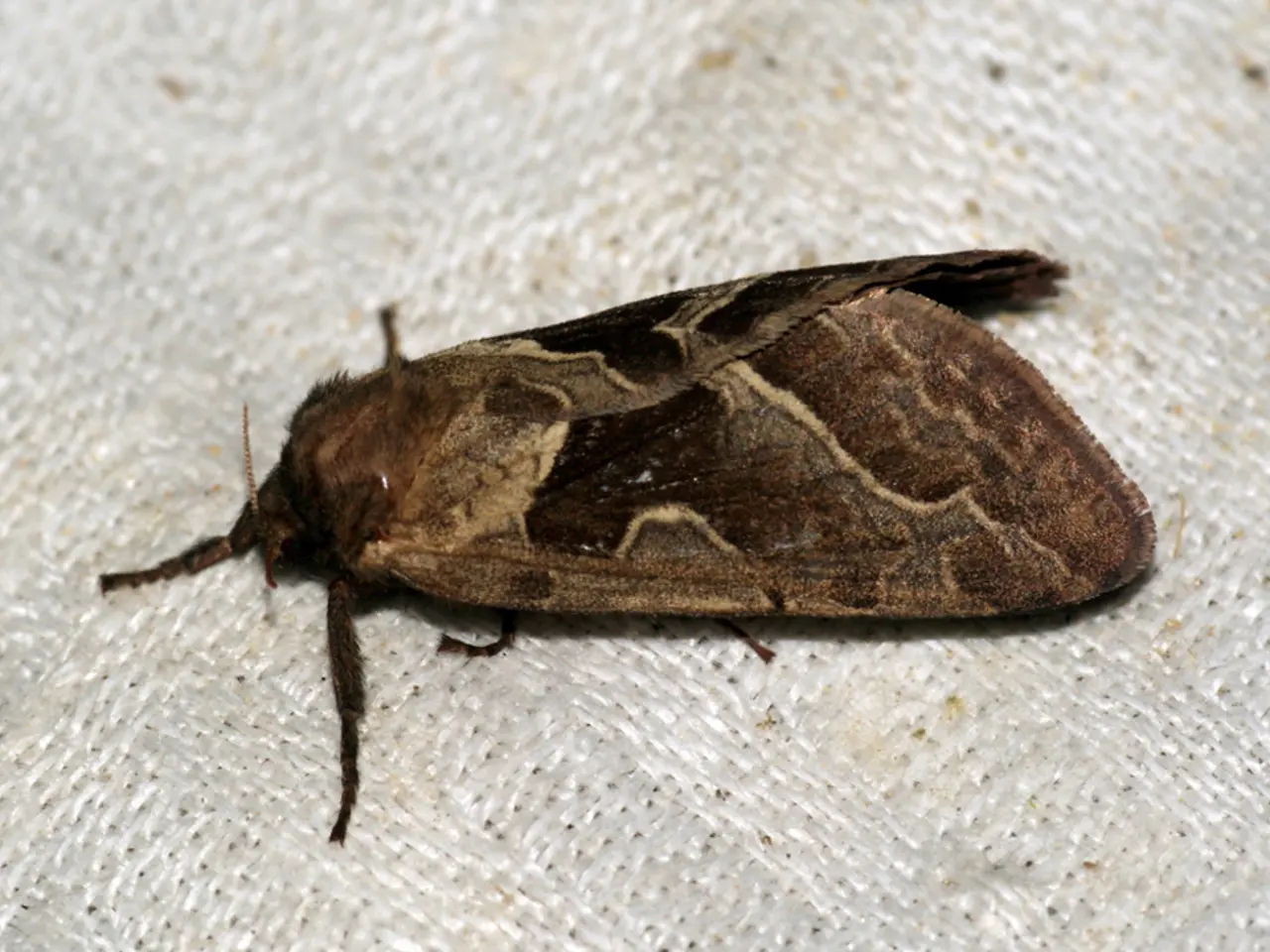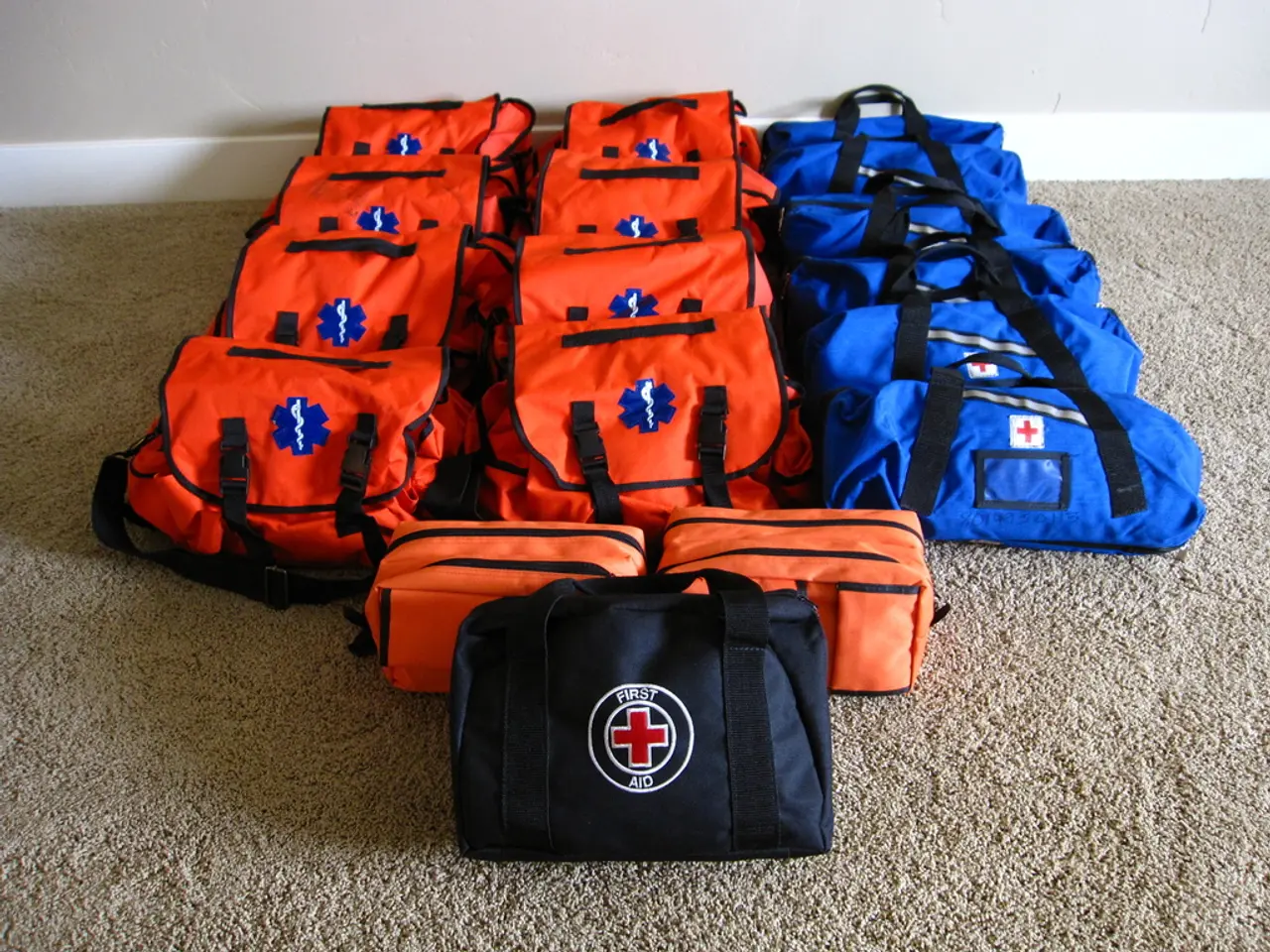Skin Irritations Akin to Scabies: Underlying Causes, Identifiable Symptoms, and Potential Remedies
In the realm of skin health, various conditions can arise, each with its unique characteristics. Here, we delve into some common skin ailments, including scabies, psoriasis, eczema, and contact dermatitis.
Scabies, an infestation by the mite Sarcoptes scabiei, is distinguished by a pimple-like rash, small blisters, scales, and lesions on various parts of the body. Itching, often severe and worse at night, is a common symptom, with the rash affecting many parts of the body, such as the wrists, elbows, armpits, spaces between the fingers and toes, nipples, penis, waist, and buttocks.
Psoriasis, on the other hand, is an autoimmune inflammatory disorder. On lighter skin, psoriasis will be red or pink. On browner skin, psoriasis appears salmon-colored, and the scales are silvery-white. On dark skin, psoriasis patches are violet in color, and the scales will appear gray. Symptoms of plaque psoriasis include thick skin patches normally found on the elbows, scalp, knees, lower back, face, palms, and soles of the feet, silvery-white scales on the patches, dry, cracked skin that may itch or bleed, and plaques of different sizes.
Eczema, or atopic dermatitis, is related to skin barrier dysfunction and allergy. It is characterised by itchiness, dry patches of skin that are red to dark brown in color, hardened or thickened skin, and itching that can disrupt sleep.
Contact dermatitis occurs when a substance causes an allergic reaction. It presents as dry, discolored, itchy areas that may blister or form hives where the skin contacted the irritant/allergen.
Folliculitis is a skin infection that develops in the hair follicles and looks similar to acne, often without itching. Mild cases may resolve without medical attention, but a doctor may prescribe a topical or oral antibiotic for more severe cases.
Papular urticaria is a reaction to insect bites, causing itchy clusters of bumps that commonly form on the legs, forearms, and face. Dermatitis herpetiformis is a rare, chronic condition that causes severely itchy blisters and raised lesions, commonly appearing on the scalp, lower back, buttocks, elbows, and knees, and occurring alongside celiac disease.
Prurigo nodularis is a skin condition that causes firm, itchy bumps, typically beginning on the lower arms and legs.
It is important to note that scabies, psoriasis, eczema, contact dermatitis, folliculitis, papular urticaria, dermatitis herpetiformis, and prurigo nodularis are not contagious. Insect bites from mosquitoes, fleas, bed bugs, chiggers, and other mites can look similar to scabies.
When encountering skin changes, it is essential to seek medical advice if symptoms persist, or if there is pain, changes to the color or texture of the skin. Always consult a healthcare professional before trying a bleach bath. A dermatologist may recommend avoiding scratching the skin, using a moisturizer, using soap that is fragrance-free, applying lubricating ointments and moisturizers to damp skin after washing, and trying bleach baths.
For psoriasis, a variety of treatment options are available depending on the type of psoriasis present and its severity. Treatment for atopic dermatitis includes medications, skin care, and phototherapy. NB-UVB phototherapy treatment was found to be effective in treating atopic dermatitis.
In summary, understanding the differences between these skin conditions can aid in proper diagnosis and treatment. Always consult a healthcare professional for any skin concerns.
[1] https://www.ncbi.nlm.nih.gov/pmc/articles/PMC5810855/ [2] https://www.ncbi.nlm.nih.gov/pmc/articles/PMC2739137/ [4] https://www.ncbi.nlm.nih.gov/pmc/articles/PMC6190117/ [5] https://www.ncbi.nlm.nih.gov/pmc/articles/PMC3877545/
- Depression can exacerbate the emotional distress of living with skin conditions like eczema, psoriasis, or contact dermatitis, highlighting the importance of holistic health-and-wellness practices.
- AQ, a predictive skincare entity, uses science to recommend products tailored to an individual's unique skin-conditions, helping users achieve and maintain healthier skin.
- Copd, a lung disease, doesn't cause skin conditions directly, but poor respiratory health might affect an individual's ability to follow proper skincare routines due to potential limitations.
- While bleach isn't typically associated with skin conditions, a dermatologist may recommend a bleach bath for some cases of eczema or psoriasis under precise conditions to reduce symptoms.
- Skincare regimens for treating and managing skin-conditions like rash, eczema, psoriasis, and contact dermatitis may include medical-entity recommendations such as moisturizers, soap alternatives, and specific phototherapy treatments.
- It's crucial to note that prurigo nodularis, folliculitis, papular urticaria, and dermatitis herpetiformis are not skin-conditions one should be concerned about in terms of contagion, but the presence of insect bites from various entities may present symptoms resembling scabies.
- Medical-adverts may encourage the utilization of skincare products or treatments for various skin-conditions, but it's crucial to consult a healthcare professional before implementing any new skincare regimen or treatment.
- The health-and-wellness industry has seen a rise in predictive entities like AQ, which help individuals navigate the complex landscape of skincare products and medical-conditions to achieve a healthier lifestyle.
- When facing skin changes, it's essential to remain patient, seek medical advice if symptoms persist or worsen, and practice careful self-care to prevent the development of more serious skin-conditions such as rash, eczema, or psoriasis.




